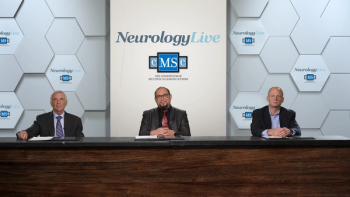
Drs Ahmed Obeidat, Randall Schapiro, and Jeffrey Wilken, provide insight on how to initiate and frame conversations surrounding cognition and brain health with patients with multiple sclerosis.
Assistant Professor, Department of Neurology, Neuroimmunology and Multiple Sclerosis; Director, Neuroimmunology and MS Fellowship Program, The Medical College of Wisconsin

Drs Ahmed Obeidat, Randall Schapiro, and Jeffrey Wilken, provide insight on how to initiate and frame conversations surrounding cognition and brain health with patients with multiple sclerosis.

Ahmed Obeidat, MD, PhD; Randall Schapiro, MD, FAAN; and Jeffrey Wilken, PhD, share their opinions on the utility of disease-modifying therapies to increase cognition and brain health in patients with multiple sclerosis.
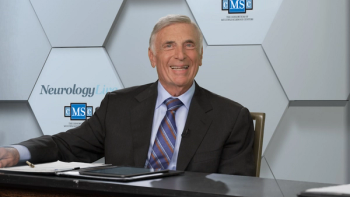
Drs Randall Schapiro and Jeffrey Wilken explore the idea of cognition and brain health biomarkers in multiple sclerosis and provide imaging and diagnostic recommendations.

Benjamin Greenberg, MD, hypthothezies on where BTK inhibitors fit into the current treatment algorithim for the management of patients with multiple sclerosis.
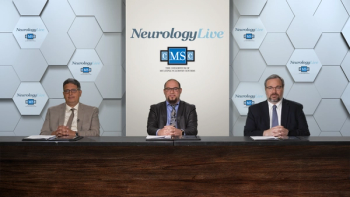
Experts in neurology comment on the factors they consider when selecting and sequencing treatments for their patients with multiple sclerosis.

Drs Hesham Abboud and Benjamin Greenberg share their approach to treatment selection and highlight the importance of individualizing treatment and patient education.

Ahmed Obeidat, MD, PhD; Benjamin Greenberg, MD; and Hesham Abboud, MD, discuss the prevelance of multiple sclerosis and comment on the mechanisms of action and available drug classes utilized in disease management.
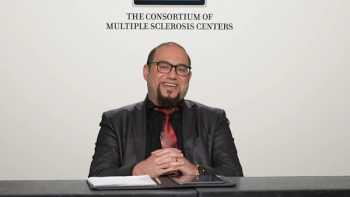
Experts in neurology provide insight into the impact multiple sclerosis can have on patients and hypothesize about initiating treatment before cognitive impairment is observed.

Ahmed Obeidat, MD, PhD; Randall Schapiro, MD, FAAN; and Jeffrey Wilken, PhD, discuss the impact of polypharmacy on cognitive health and share their thoughts on deciding when to cease treatments in patients with multiple sclerosis.

Drs Randall Schapiro and Jeffrey Wilken provide insight into the risk factors and disease progression noted in patients with multiple sclerosis.

Experts in neurology comment on the lack of definition of cognitive impairment in multiple sclerosis, highlighting an inability to adequately screen for and measure this disease symptom.

Ahmed Obeidat, MD, PhD; Randall Schapiro, MD, FAAN; and Jeffrey Wilken, PhD, comment on early investigations surrounding the impact of multiple sclerosis on cognition and brain health and the current lack of focus regarding its impact on patients.

Ahmed Obeidat, MD, PhD; and Randall Schapiro, MD, FAAN, discuss the prevalence of multiple sclerosis and highlight how the disease has evolved since they began practicing. They also review the impact it has on patients and their support communities.
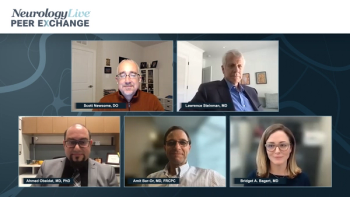
Experts in neurology share their hopes for the future of multiple sclerosis treatment and discuss unmet needs and novel targets.
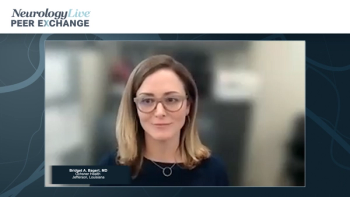
Amit Bar-Or, MD, FRCPC, and Bridget A. Bagert, MD, share their opinions on how to move investigative treatments for multiple sclerosis off the laboratory bench and into clinical practice.

Doctors in neurology comment on the hidden symptoms of multiple sclerosis and debate whether they should be treatment targets.

Experts in neurology comment on clinical trial design considerations and discuss novel imaging techniques and biomarkers that they consider most important to investigate for multiple sclerosis.

Bridget A. Bagert, MD, leads a discussion on the ideal patient populations for using a potential vaccine for multiple sclerosis, and the panel comments on other factors to consider when administering vaccines.

Amit Bar-Or, MD, FRCPC, discusses the potential impact vaccination against Epstein-Barr virus could play on multiple sclerosis rates, highlighting recent investigations.

Experts in neurology discuss screening and diagnostic considerations for a patient newly diagnosed with multiple sclerosis.

Bridget A. Bagert, MD, and Ahmed Obeidat, MD, PhD, examine the clinical implications of a causal link between Epstein-Barr virus and multiple sclerosis and provide insight on how to discuss this link with patients.
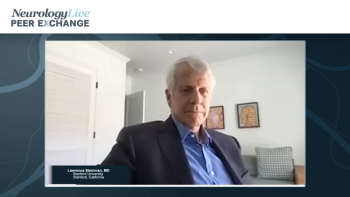
Lawrence Steinman, MD, discusses his recent publication, which demonstrated the causal link between Epstein-Barr virus and multiple sclerosis, highlighting key findings and conclusions.
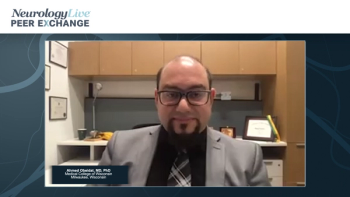
Ahmed Obeidat, MD, PhD, comments on other viruses that have been linked to the development of multiple sclerosis and discusses how they can be both protective and detrimental.

Amit Bar-Or, MD, FRCPC, and Bridget A. Bagert, MD, share their opinions on the role the Epstein-Barr virus plays in the development of multiple sclerosis, highlighting recent publications examining this link.

Scott Newsome, DO, and Lawrence Steinman, MD, discuss the pathophysiology of the interactions between viruses and the immune system and explore how this can lead to autoimmune diseases.

Lawrence Steinman, MD, provides an overview of the role viruses play in the activation of the immune system, highlighting their role in triggering neuroinflammatory conditions.

Expert neurologists emphasize the importance of conversations around patient lifestyle, mental health, and comorbid conditions as keys to improve care for MS.
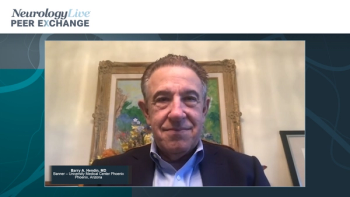
Barry A. Hendin, MD; Regina Berkovich, MD, PhD; and Ahmed Z. Obeidat, MD, PhD, explore the role of biomarkers, precision medicine, and repair mechanisms to improve treatment of MS going forward.

Regina Berkovich, MD, PhD, and Barry A. Hendin, MD, review potential use of BTK inhibitors in the treatment of MS.

A trio of experts in multiple sclerosis exchanges their thoughts on the use of the sphingosine-1 phosphate modulating class of medicines in treating the disease. [WATCH TIME: 3 minutes]